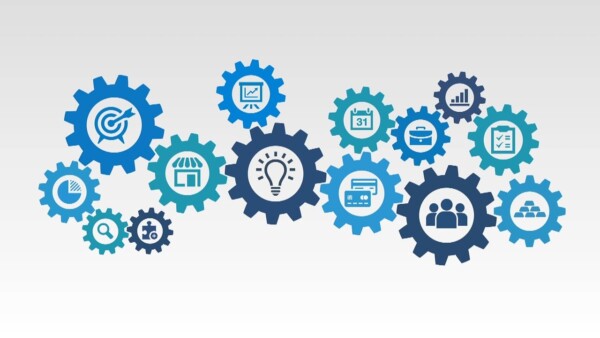 Key Performance Indicators (KPIs): Measuring Success
Key Performance Indicators (KPIs): Measuring Success
As organizations embark on their ERP journey, they need to maintain a keen focus on measuring success. In this section, we delve into the crucial realm of Key Performance Indicators (KPIs) and their instrumental role in tracking and evaluating the progress of ERP goals.
Measurable success is not just a desirable outcome, but an essential component of any effective ERP strategy. By shedding light on the importance of measurable success, organizations can cultivate a culture of accountability and transparency, fostering an environment where progress is not just assumed but tangibly demonstrated through well-defined KPIs.
Key Performance Indicators form the compass that guides organizations through the ERP landscape. They serve as quantifiable metrics that reflect the alignment of ERP goals with the broader organizational objectives.
Furthermore, KPIs act as a dynamic feedback mechanism, offering real-time insights into the health and progress of ERP initiatives. This visibility is invaluable, allowing organizations to make informed decisions, course corrections, and optimizations based on empirical data. It transforms the ERP journey from a speculative endeavor into a data-driven evolution, where success is not just a subjective concept but a quantifiable reality.
Selecting the right KPIs requires a meticulous process, so the team can ensure they are not only relevant to the specific ERP goals but also reflective of the overall organizational success. To do so, the team needs to consider the unique nature of each ERP goal and the varied expectations across different functions. From improved operational efficiency and cost savings to enhanced customer satisfaction, the KPIs should encapsulate the diverse facets of success envisioned through ERP implementation. This tailored selection of KPIs ensures that organizations have a comprehensive and nuanced understanding of how well their ERP goals are being realized in practice.
List of Common KPI’s
| KPI Category | Key Performance Indicator (KPI) | Description |
| Project Management KPIs | Project Timeline Adherence | Measures the extent to which the ERP project adheres to the planned timeline. It helps evaluate project management efficiency and identify areas for improvement. |
| Budget Adherence | Assesses how well the ERP project stays within the allocated budget. Monitoring budget adherence is crucial for financial planning and resource allocation. | |
| User Adoption and Satisfaction KPIs | User Training Effectiveness | Evaluates the effectiveness of user training programs to ensure that employees are adequately prepared for the new ERP system, minimizing disruptions. |
| User Satisfaction | Gauges the satisfaction levels of end-users with the implemented ERP solution. Positive user satisfaction indicates successful adoption and system usability. | |
| System Performance KPIs | System Uptime and Reliability | Measures the ERP system’s availability and reliability. High uptime and reliability are critical for ensuring continuous business operations. |
| Response Time | Assesses the time taken by the ERP system to respond to user queries or commands. Faster response times contribute to enhanced user experience and productivity. | |
| Data Accuracy and Integrity KPIs | Data Accuracy Rate | Measures the accuracy of data entered, processed, and stored in the ERP system. Accurate data is essential for informed decision-making and overall system reliability. |
| Data Integrity Checks | Monitors the effectiveness of data integrity checks within the ERP system to identify and rectify any discrepancies, ensuring the reliability of information. | |
| Process Efficiency KPIs | Process Cycle Time | Measures the time taken to complete specific business processes within the ERP system. Improving process cycle times enhances overall operational efficiency. |
| Error Rates in Processes | Evaluates the occurrence of errors or discrepancies in business processes executed through the ERP system. Lower error rates indicate improved system reliability. | |
| Integration and Interoperability KPIs | Integration Effectiveness | Assesses how well the ERP system integrates with other organizational systems and third-party applications. Seamless integration enhances overall business efficiency. |
| Interoperability Score | Measures the ability of the ERP system to interact and share data with external systems and platforms. Higher interoperability scores signify enhanced connectivity. | |
| Business Impact and ROI KPIs | Return on Investment (ROI) | Calculates the financial return generated from the ERP implementation compared to the initial investment. A positive ROI indicates the project’s financial success. |
| Business Process Improvement | Evaluates the extent to which ERP implementation contributes to improved business processes, efficiency gains, and overall organizational performance. | |
| Support and Maintenance KPIs | Issue Resolution Time | Measures the time taken to resolve issues or incidents related to the ERP system. Faster issue resolution minimizes disruptions and ensures continuous system functionality. |
| System Downtime | Tracks the duration of system downtime, aiming to minimize disruptions and maintain optimal system availability. |
In conclusion, organizations that prioritize the careful selection and continuous monitoring of KPIs set themselves on a promising trajectory. They not only envision, but also systematically achieve the intended benefits of ERP goals. By embracing the illuminating power of KPIs, organizations pave the way for a successful ERP journey marked by clarity, accountability, and tangible results.
For more information about successful ERP planning, check out the previous posts to this series:






Leave A Comment